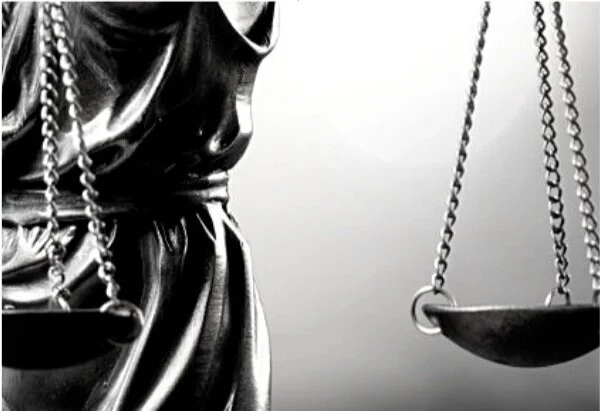The Myth of Separateness, Being in Right Relationship, and the 12 Steps
/Today, we often hear a deep sense of fear and insecurity embedded in our public discourse. We worry about the democracy we so dearly fought to create, the planet that has supported and nourished us, and the relationships that have made life worth living.
We are constantly being told that we need to be the best—country, student, athlete… You name it. To listen to some politicians, being on top in this highly competitive world is the only prize worth working for. It is no surprise that many of us feel we have lost our way.
I’m a visual thinker. When I think about my own struggles and those of the people I love and work with, and when I listen to what is going on in politics, I picture a see-saw, like the ones in a children’s playground. I am reminded of how hard it is to balance it so that both sides are even. Invariably, someone is on top or on the bottom, trying to achieve the opposing position. It takes care, cooperation, and attention to balance that see-saw.
Outside of the playground, it is even more difficult to create balance in our life, in our relationships, and in our country. When we fall for the illusion that success is measured in how many “likes" we get on Twitter, or how much money we have in our bank accounts, or how much weight we need to lose to get into our ideal sized jeans, we can be seduced into believing that happiness and peace will come from something OUT THERE; we lose sight of the more important questions like, What is my true purpose on this planet?
We have been told for decades that we create our own happiness by the choices we make, that we are the captains of our ship, and that whatever we have is the fruit of our own time, talent and tenacity. So, why are hundreds of thousands of us in this country suffering from an anxiety that zaps our self-esteem, our energy, and our ability to be attentive to anything outside of our public persona? The unspoken (and sometimes spoken) promise was that we could achieve anything we want in life if we want it badly enough and work hard enough, that we can manifest what we believe—and boy, did we believe that we could! And yet, we see so much endless suffering in the form of insecurity, depression, addiction, and hatefulness towards anyone we consider “other.”
Pressure: A Cultural Context
The 60’s “Me Generation” put tremendous pressure on us to do it all and make it look like we didn’t need anyone else’s help. But, success was often elusive for those who didn’t have the privileges that go along with being white and middle/upper class. Women, though purporting the right to equality and equity in the workplace, were still expected to run the household. The emotional, psychological, and most of the physical energy in keeping a family afloat lay squarely on the shoulders of women, whether they worked a full-time job outside the house or not.
And men—though we bowed to their physical prowess and, grudgingly, to their ability to make more money than women—were considered secretly by many women to be weaklings when it came to the emotional heavy lifting in family life. This left them a little outside of the family fold, even as we expected them to pitch in more with daily chores of living. And of course, we didn’t expect them to complain.
It didn’t matter, though. We didn’t quite have the language to talk about the experience of feeling alienated and lonely. We were lucky enough to be living the “American dream” of having a good job, a fancy car, a house in the suburbs, a spouse, a few kids, and a lawn to cut on the weekends.
Fifty years later, and we are still suffering from Anxiety and Depression at escalating rates. While Gen-X’s are making their six-figure incomes at IT jobs, we are presently experiencing an opioid epidemic that is devastating not only poorer neighborhoods, but affluent communities as well.
What do these examples point to?
Personally, I think it is what Mother Teresa warned us about—that we have forgotten that we belong to each other. We have become so focused—on our own personal accomplishments, on the latest electronic gadget or game, or on Glitz and what will make us look good on the outside—that we have lost sight of what creates a peaceful heart: being in community.
"If we have no peace, it is because we have forgotten that we belong to each other."
- Mother Teresa of Calcutta
Humility: Knowing Our Place And Limits Without Shame Or Guilt
I learned the language to describe being “out of balance” and "out of place” from a teacher Joanne Krestan, a contributor to the book, The Responsibility Trap. I learned that what was called my “bossy” nature really was my way of adapting to the stress of growing up in a family with secrets by becoming over-responsible. It started very early in life. It meant that I couldn’t relax, that I was hyper-vigilant for signs of problems in the house, that I would do anything to prove that we were a “normal” family. I was an overachiever and a perfectionist, always peddling as fast as I could to avoid being judged as a fraud or a fool.
Many years later, after a second “failed” relationship, I began attending a support group for women who love too much, ultimately spending the last 22 years actively working the 12 steps of a Relationships Anonymous group. It’s for people who know no boundaries between what is yours to carry and what belongs to the other. It’s what happens when you keep hoping and wishing the other will change but have no clue that you yourself have to change by stepping back and facing your own demons.
RA saved my life and taught me how to be peaceful in the midst of chaos. It taught me to be responsible and accountable for myself and to hold others appropriately accountable. It is a spiritual program that deals with helping people be “in Right Relationship" in the world. It is a self-caring program that reminded me that: 1) I could only be in Right Relationship by admitting that my life was out of control; 2) that there is a Power greater than myself that could bring me to sanity; and 3) that I needed to turn my will and my life over to that Power.
These are the first three steps of all 12-step programs, but they can apply to everyone: admitting our powerlessness to change; acknowledging that we are not God; letting go. What was funny (in an ironic kind of way) was that I thought I WAS doing all those things, only to discover that I had been using my version of spirituality to manage and control others, as in, “God help me to get [so-and-so] to do the right thing”, not “God, help ME to do the right thing in this situation.”
Shame-Based Families
When we grow up in a shame-based family system—that is, when something makes the parents feel intrinsically unworthy of love and respect (one side of the see-saw)—it is communicated to the children who often attempt to deal with it through giving up, distracting, denying, or working overtime to overcome the sense of “not being good enough,” by becoming Perfect (the other side of the see-saw). Different from guilt, it is the sense that no matter what you do, it’s never enough because YOU are not enough. That makes it difficult to ask for help because it means admitting to that which you are trying to avoid feeling. Shame can come from so many sources: addiction, mental or physical illness in the family, racism and internalized racism, poverty, secrets, or some trauma experienced by a member of the family. It could truthfully be almost anything that makes us feel worthless.
People often only go to 12-step groups as last-ditch efforts to “save themselves.” The spiritual emergency of living in their skin often has to be greater than admitting their need for others’ support and guidance. They usually feel as if they are dying inside, and that it is this, or falling into the abyss.
Twelve-step programs are structured programs where we look at how each step applies to our life. Most of us get stuck on the 4th step, the one where we have to take a “fearless moral inventory” of our life. A sponsor of our choosing helps us through this narrow path, ever reminding us of the love and support of our Higher Power—whether it is the God of our religious tradition, or anyone or anything outside of self.
Then, we start to work on who we need to make amends to, and who deserves acknowledgment for how we hurt them. We do so to free ourselves of the guilt of our own wrongdoing. We continue to do so in our present relationships as well. We learn to apologize in the moment when we have offended someone by commission or omission. Finally, having had a spiritual awakening through prayer and meditation, we aim to pass what we learned to others who need the same support.
Fellowship: Remembering We Are Not Alone
Beyond this step work, the most important experience of the 12-step program I attended was the sense of fellowship—remembering that we are all in this together, that we not alone, and that there is no shame in being “just a human being”. For this, I am eternally grateful. It is what freed me to accept myself unconditionally even when others might not, and even when I became painfully aware of one of my imperfections. It gave me a clear roadmap for how to live my life and relationships, remembering that I am worthy—that my life has a purpose and that it is for me to discover it—and that true peace starts when I remember that I am not meant to be alone, that I need others to share the challenges of this life.
When I do my work, I am more open to others. I am grateful for my gifts and compassionate about my shortcomings. In doing so, I can take my rightful place among all creation, extend compassion to others, and enjoy the peace of knowing that I am among the blessed.
Which of the 12 steps do you identify with?
What gift or awareness can be received from a 12 step program?
Share your comments at the bottom of the page.
© Whatismyhealth
Special thanks to our resources:
https://adaa.org/about-adaa/press-room/facts-statistics
https://www.hhs.gov/opioids/about-the-epidemic/index.html
Bepko, Claudia and Krestan, Jo Ann. The Responsibility Trap. New York: Free Press, 2002.
https://coda.org/wp-content/uploads/2018/09/Twelve-Steps.pdf



























Understanding our attachment styles can help us bypass destructive strategies and find a more authentic connection.